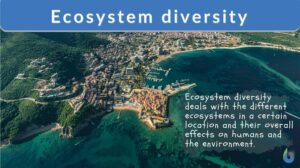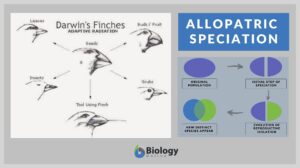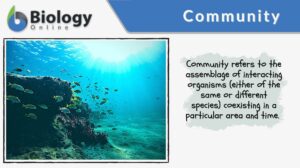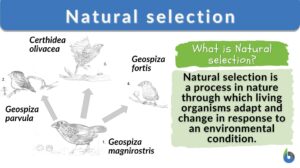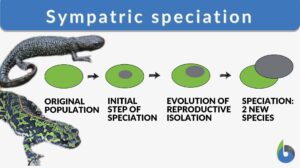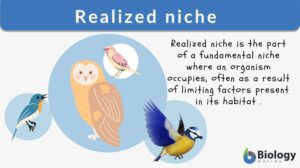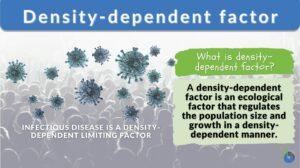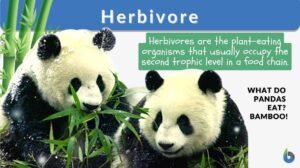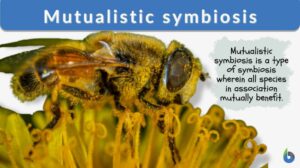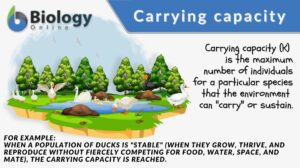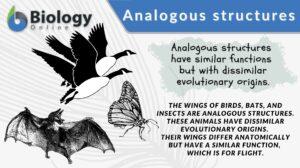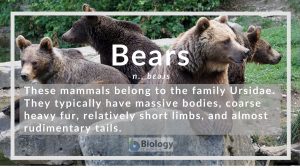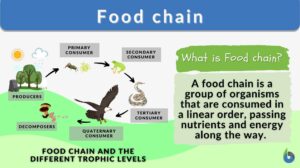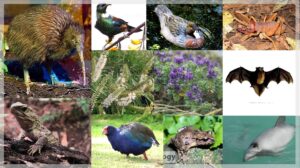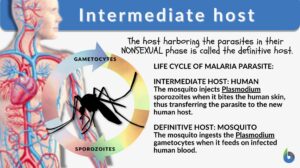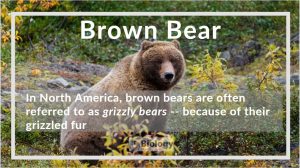Search Results for: fish habitat
Fish habitat
Fish habitat The aquatic environment and the immediately surrounding terrestrial environment that, combined, afford the... Read More
Hermaphrodite
We all know that typically living organisms are divided into two main categories of sex-based on their biological structure.... Read More
Ecosystem diversity
Ecosystem Diversity Definition What is ecosystem diversity? Ecosystem diversity deals with the study of different... Read More
Allopatric speciation
We can define speciation as a process by which the novel genetically independent group of organisms are formed through the... Read More
Parasitism
Organisms depend on different sources of food to survive. Larger organisms like plants make their own food (autotrophs) and... Read More
Community (biology)
Community, in biology, refers to the assemblage of interacting organisms (either of the same or different species)... Read More
Natural selection
Natural Selection Definition What is natural selection in biology? Natural selection is defined as a process in nature... Read More
Sympatric speciation
Speciation is a process of evolution through which two different existing populations evolve and a distinct species form. It... Read More
Animal Water Regulation
Homeostatic control, a set environment, and how evolution and natural selection drives a species to adapt to its environment... Read More
Realized niche
What is a niche? A niche can be defined as the means by which a species or an individual interacts with its environment. In... Read More
Density dependent factor
Density-dependent factors are the limiting factors of an ecosystem that regulate population growth in a density-dependent... Read More
Community Patterns
By: Maria Victoria GonzagaIn the previous lesson, we learned what a population is, its attributes, and processes... Read More
Macrophytes
Introduction Examples of Macrophytes. (Source: Canada's AquaticEnvironments) ... Read More
Parthenogenesis
To reproduce, by definition, means to produce new offspring. The process is referred to as reproduction, which is one of the... Read More
Zooplankton
Definition noun Animal or animal-like constituent of plankton, comprised mainly of freely floating protozoa, small... Read More
Mutualistic symbiosis
Mutualistic Symbiosis Definition In order to understand what a mutualistic symbiotic relationship means, we will break down... Read More
Blindness – Evolutionary regression? Maybe not!
The recent Netflix's hit flick, Bird Box, surely startled the viewers with the thrilling scenarios revolving around the... Read More
Carrying capacity
Carrying Capacity Definition What is carrying capacity? In biology and environmental science, the carrying capacity of a... Read More
Analogous structures
Analogous Structures Definition In evolutionary biology, analogous structures are biological structures having similar or... Read More
Locomotion
Definition noun The ability of cells or organisms to move and propel itself from place to place Supplement Locomotion in... Read More
Ecological Research: Measuring & Analysis
By: Maria Victoria GonzagaPreviously in this lesson, we learned that high biodiversity is essential to a healthy... Read More
Food chain
Everything is a cycle in life. The way organisms consume their food also follows a cycle. This is usually described as the... Read More
New Zealand’s Biodiversity
Written by: Maria Victoria GonzagaPeer-reviewed by: Cathy Buntting, Ph.D. and Andrea SoanesWhy is New... Read More
Sensitive species
sensitive species (Science: ecology, zoology) species that can only survive within a narrow range of environmental... Read More
Intermediate host
Intermediate Host Definition When looking at the relationships amongst different biological members of our biosphere, we... Read More
Erythrocyte
Erythrocyte Definition Erythrocytes (red blood cells or RBCs) are the myeloid series of specialized cells that play an... Read More
Positive feedback
Positive Feedback Definition Each mechanism of the body like temperature, blood pressure, and levels of specific nutrients... Read More
Brown bear
Brown Bear Definition The brown bear (Ursus arctos) is a large bear species. In North America, brown bears are often... Read More



